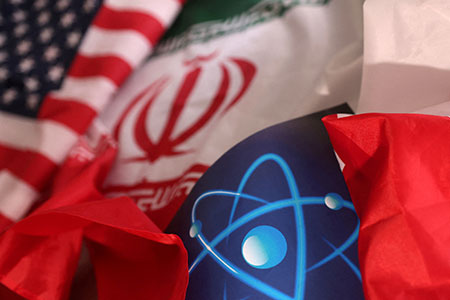
The issue of Tehran’s right to independently enrich uranium became one of the serious obstacles during the next round of US-Iranian talks over the weekend, The Wall Street Journal (WSJ) claims. The United States is pushing for the Iranian side to agree to import nuclear materials for civilian purposes from abroad, while the latter does not want to depend on foreign sources of raw materials. A separate problem is Tehran’s missile program. As the Iranian Foreign Ministry publicly admits, there are disagreements on big and small issues.
The April 26 meeting in Oman was the third round of negotiations between the United States and Iran aimed at concluding a bilateral nuclear deal. This was the first episode when expert groups from the two countries met to discuss specific issues.
According to the WSJ, despite the positive facade of public statements, the parties have serious disagreements on key issues. According to these reports, Washington did not oppose Tehran’s civilian nuclear program, but demanded that it import enriched uranium from abroad, and the Iranian side refused to depend on external fuel sources and indicated the right to enrich uranium at home.
Shortly before the next round of talks in Oman, US Secretary of State Marco Rubio revealed the essence of the US demands. He explained that Washington respects Tehran’s pursuit of a civilian nuclear program, but wants the Islamic Republic to be given the opportunity to receive enriched uranium only from other countries. “If the Iranians insist on enriching uranium (on their territory. – NG), they will become the only state in the world that does not have a weapons program (meaning declaratively. – “NG”), but which is engaged in enrichment, and this is problematic,” Rubio stressed. This situation may open a window of opportunity for military developments.
Earlier, the special representative of the President of the United States, Stephen Witkoff, noted that under the new agreement, the Iranian side would be able to enrich uranium to the level of 3.67%, the level set in 2015 by the original nuclear deal– the Joint Comprehensive Plan of Action (JCPOA), concluded between Iran and the “six” international mediators (Russia, USA, China, Great Britain, France, Germany). However, as Rubio explained, the figure of 3.67% concerns only uranium, which Tehran will have to import for the needs of its civilian nuclear program. There is no question of allowing Iran to start its enrichment cycle, according to Rubio’s statements.
As for Iran, its leadership has made positive statements regarding the April 26 round of consultations in Oman. “The atmosphere of the talks was serious and productive,” Abbas Araghchi, Minister of Foreign Affairs of the Islamic Republic, informed reporters. “We’ve moved away from some major issues, but that doesn’t mean we’ve resolved all our differences.” The chief of Iranian diplomacy did not deny that Iran and the United States “have disagreements on big and small issues.” However, according to him, in the near future the delegations of the two states will meet once again to resolve the contradictions that have arisen. Araghchi did not say anything about the essence of the disagreement.
A source from The New York Times (NYT) among American officials explained that the American side wants to move the next negotiations to a more geographically convenient location close to the United States. Representatives of the International Atomic Energy Agency (IAEA) may join the next round of consultations. “Now we are gradually moving beyond the general issues and moving on to the details. We had experts on economic issues. I think experts from the IAEA will join us at the next meeting,” Araghchi expressed confidence, commenting on the April 26 round of negotiations.
Another contradiction related to the negotiations between the United States and Iran relates to Tehran’s missile program. Washington wants restrictions to be imposed on it, because it is the launch vehicle for nuclear warheads.
Perhaps it is no coincidence that the background of the third round of consultations in Oman was the explosions in Iran, in the port of Shahid Rajai near the city of Bandar Abbas. Almost 30 people are listed as dead, about 1,400 people were injured. According to NYT sources close to the Islamic Revolutionary Guard Corps, the detonation of sodium perchlorate used in the creation of solid rocket fuel could have caused the explosion. In recent months, there have been reports that two ships from China have unloaded these raw materials at Shahid Rajai.
It is generally believed that at the expense of China, the Iranian side is trying to restore the missile potential depleted as a result of the October Israeli attack.
However, the official representative of the Iranian Ministry of Defense, Reza Talayinik, rejected the version that military products were in the port.
